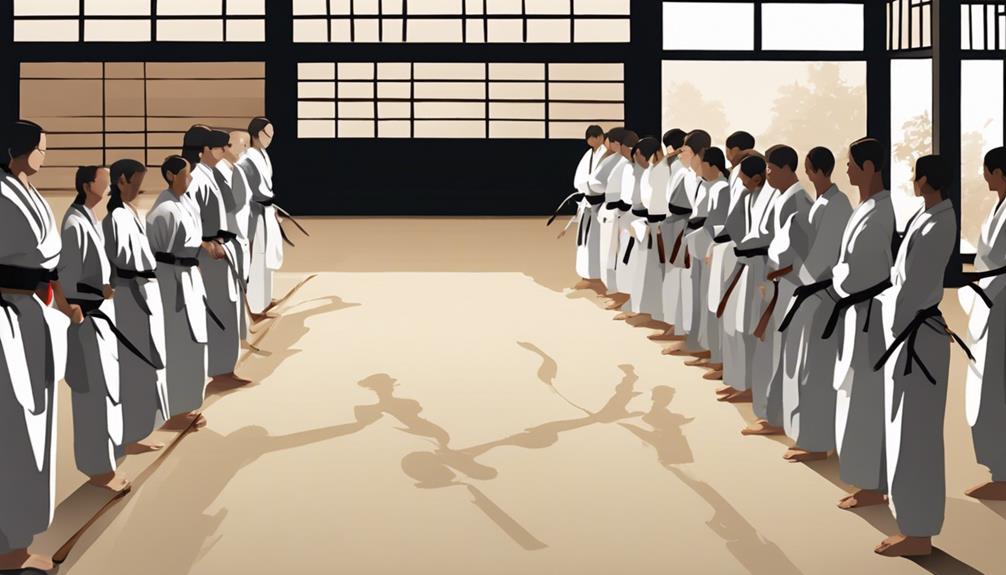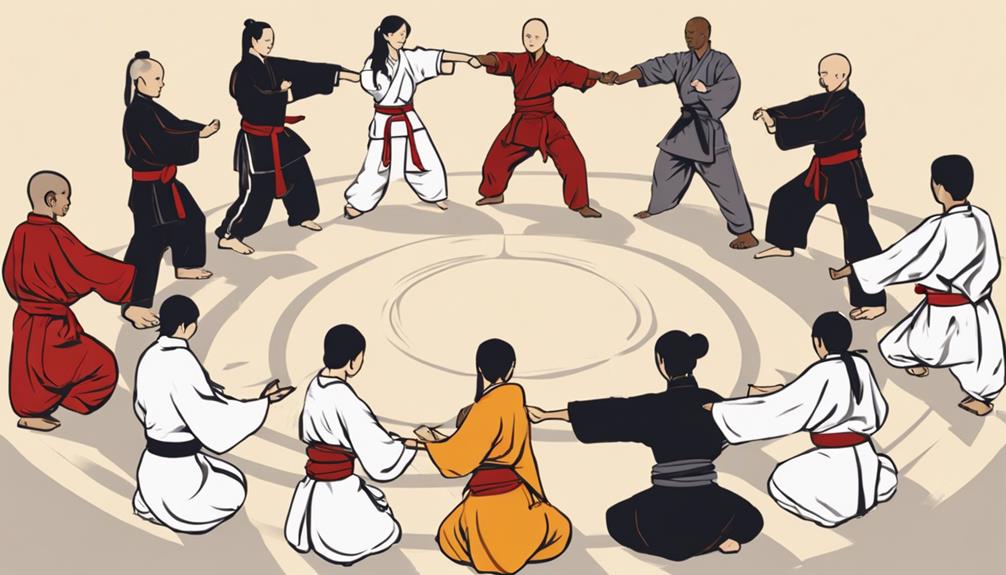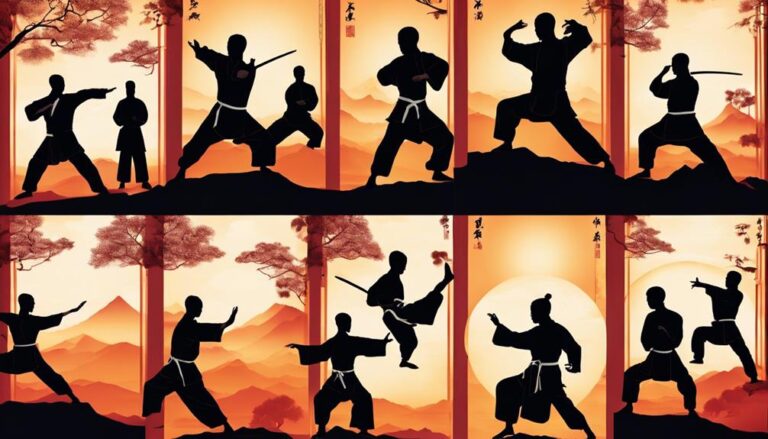Imagine you’re holding a map that leads to a hidden treasure, but instead of gold, it’s the mastery of Kung Fu you’re after.
The ethics you learn and practice along this journey aren’t just rules; they’re the compass that keeps you on the right path, ensuring you don’t lose your way in the pursuit of power.
You’ll discover that respecting your teachers, showing humility, and using your skills responsibly aren’t just about becoming a better martial artist; they’re about becoming a better person.
Let’s explore why these ethical principles are the foundation upon which the art of Kung Fu is built and how they shape not only your practice but also your character.
Contents
The Philosophy Behind Kung Fu

At its core, Kung Fu philosophy embodies the pursuit of self-improvement and inner peace, emphasizing respect, discipline, and humility in every aspect of life. This ancient practice isn’t just about physical prowess; it’s deeply rooted in martial arts ethics that guide you towards becoming a better version of yourself.
By adhering to principles of non-violence, loyalty, and continuous self-betterment, you engage in character development that transcends the dojo. Kung Fu encourages you to embody integrity and dedication, not only in your training but in all facets of life.
Furthermore, this disciplined approach doesn’t just fortify the spirit; it also aims to promote health, ensuring a harmonious balance between mind, body, and soul. Through Kung Fu, you learn that true strength lies in virtue and personal growth.
Fostering Respect and Discipline

How do respect and discipline, foundational pillars in Kung Fu, transform not only your martial arts practice but also shape your character and interactions with the world? In your martial arts training, these virtues aren’t just about the movements you master but also about the person you become.
| Aspect | Impact |
|---|---|
| Respect | Fosters humility and appreciation. |
| Discipline | Promotes self-control and dedication. |
| Cooperation | Creates a harmonious training space. |
| Tradition | Deepens understanding of the art. |
Embracing respect and discipline leads to personal growth, character development, and mastery in Kung Fu. It’s a journey that not only hones your skills but profoundly shapes your ethical stance and interactions with everyone around you.
The Role of Humility

In Kung Fu training, embracing humility is crucial for your growth and development as it teaches you to value others’ expertise and feedback. As martial artists, humility isn’t just a virtue—it’s a foundation that allows you to deeply learn the art with an open and respectful attitude. Here’s why humility stands out:
- Humility fosters respect for the skills and knowledge of others, regardless of their level.
- It encourages an openness to learning, essential for mastering Kung Fu.
- Practicing humility ensures a positive and respectful training environment, pivotal for everyone’s growth.
Ethics in Combat and Self-Defense

Understanding the importance of ethics in combat and self-defense ensures you utilize your martial skills with responsibility and integrity.
Ethical conduct in combat, a cornerstone of martial arts training, mandates using force solely in self-defense scenarios. This approach not only protects you but also upholds respect towards others, embodying the true spirit of Kung Fu.
Training in this discipline instills values of respect, discipline, and restraint, guiding you to avoid unnecessary harm.
By adhering to ethical guidelines, you navigate self-defense situations with moral integrity, reflecting the core principles of Kung Fu philosophy and tradition.
Practicing such ethics in combat showcases your commitment to using martial arts responsibly, embodying the essence of true martial prowess.
Building a Supportive Community

While ethics guide your actions in combat, building a supportive community within Kung Fu training enhances the journey, fostering camaraderie and mutual respect among practitioners. Fu Magazine emphasizes the importance of this aspect, highlighting how a network of peers and mentors not only boosts learning opportunities but also provides a foundation of emotional support.
Here’s how you can contribute to a nurturing environment:
- Encourage inclusivity and diversity, making everyone feel welcome.
- Offer motivation and accountability, helping others stay on track with their goals.
- Promote positive interactions, creating a safe space for personal growth.
Instructors, like the revered Instructor of White in Shaolin Kungfu, often lead by example, showing how a disciplined, insightful, and respectful approach can build a community that supports every member’s development.
Conclusion
In Kung Fu training, embracing ethics is vital. It’s not just about mastering physical techniques; it’s about nurturing your character and respecting the art’s deep-rooted traditions. By prioritizing values like respect, humility, and discipline, you’re not only becoming a better martial artist but a more honorable person.
Remember, the true strength of Kung Fu lies in its ability to build supportive communities and uphold integrity, both in and out of the dojo. Let’s carry these principles forward, together.





